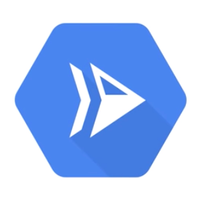Need advice about which tool to choose?Ask the StackShare community!
Google Cloud Functions vs IronWorker: What are the differences?
Developers describe Google Cloud Functions as "A serverless environment to build and connect cloud services". Construct applications from bite-sized business logic billed to the nearest 100 milliseconds, only while your code is running. On the other hand, IronWorker is detailed as "High-Scale Async Task Processing". IronWorker provides the muscle for modern applications by efficiently isolating the code and dependencies of individual tasks to be processed on demand. Run in a multi-language containerized environment with streamlined orchestration, IronWorker gives you the flexibility to power any task in parallel at massive scale.
Google Cloud Functions and IronWorker belong to "Serverless / Task Processing" category of the tech stack.
Run cloud service containers instead of cloud-native services
- Running containers means that your microservices are not "cooked" into a cloud provider's architecture.
- Moving from one cloud to the next means that you simply spin up new instances of your containers in the new cloud using that cloud's container service.
- Start redirecting your traffic to the new resources.
- Turn off the containers in the cloud you migrated from.
Pros of Google Cloud Functions
- Serverless Applications7
- Its not AWS5
- Simplicity4
- Free Tiers and Trainging3
- Simple config with GitLab CI/CD2
- Built-in Webhook trigger1
- Typescript Support1
- Blaze, pay as you go1
- Customer Support1
Pros of IronWorker
- Ease of configuration0
- Great customer support0
- Fully on-premise deployable0
- Cloud agnostic0
- Language agnostic0
- Can run Docker containers0
Sign up to add or upvote prosMake informed product decisions
Cons of Google Cloud Functions
- Node.js only1
- Typescript Support0
- Blaze, pay as you go0





















